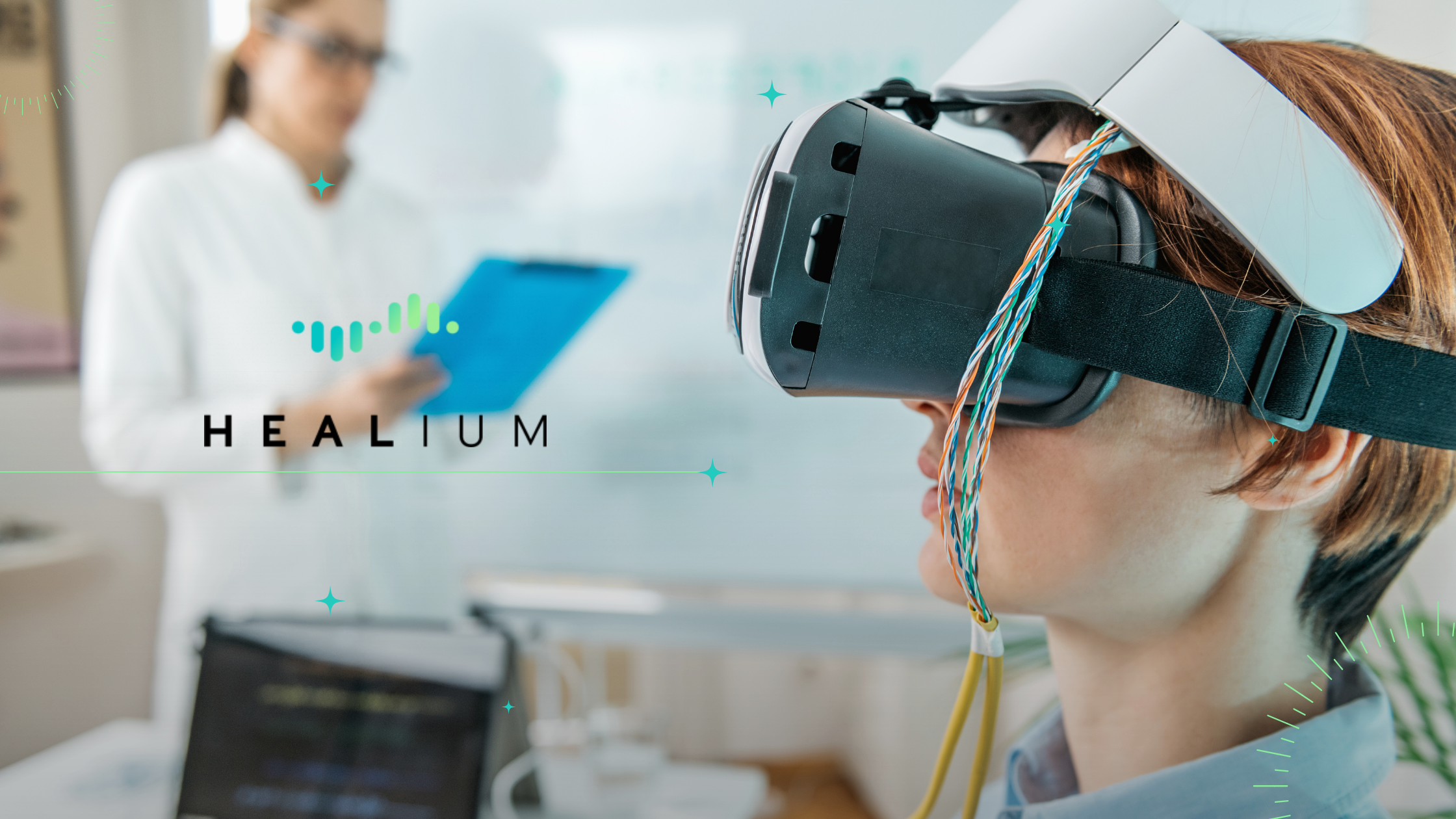How Biofeedback Reduces Stress
Learn how biofeedback helps reduce stress by allowing individuals to control their physiological responses.

Stress has been proven to significantly contribute to anxiety, depression, cardiovascular diseases, and weakened immune function, making stress management techniques essential for maintaining overall health.
This blog explores how biofeedback can reduce stress, supported by statistics, research, and real-world examples, as well as how Healium integrates biofeedback into our virtual reality meditation sessions, offering a powerful tool for stress reduction.
What exactly is Biofeedback?
Biofeedback is a technique that uses electronic monitoring to help individuals gain control over certain physiological functions. By measuring and providing real-time feedback on functions such as heart rate, brainwave activity, muscle tension, skin temperature, and more, biofeedback allows individuals to understand and modify their body’s responses to stress.
The Science Behind Biofeedback
Biofeedback operates on the principle that individuals can learn to control physiological processes that are typically involuntary. Through consistent practice and feedback, users can develop skills to manage their stress responses effectively. Research has shown biofeedback can lead to significant improvements in mental and physical health by enhancing self-regulation and promoting relaxation.
Healium incorporates these biofeedback methods into our virtual reality meditation sessions, allowing users to see biodata like their heart rate or brainwave activity in real time and make meaningful changes to reduce stress.
Naturally, there are many different forms of biofeedback, each of which can provide insight into different aspects of your body.
• Heart Rate Variability (HRV) Biofeedback: This method monitors the variation in time between each heartbeat. HRV biofeedback helps individuals learn to regulate their heart rate, promoting relaxation and reducing stress.
• Electrodermal Activity (EDA) Biofeedback: EDA measures the electrical conductance of the skin, which changes with sweat gland activity. This method is useful for assessing stress and emotional arousal.
• Brainwave (EEG) Biofeedback: Also known as neurofeedback, this method monitors brainwave activity. By training the brain to produce specific patterns of brainwaves, individuals can help improve focus, reduce anxiety, and enhance overall mental well-being.
How Does Biofeedback Help People Reduce Stress?
First and foremost, biofeedback helps individuals reduce stress by granting them awareness and control over their physiological responses. Electronic monitoring devices provide real-time feedback, which allows individuals to recognize how their body responds to certain stressors and then practice specific techniques to modify those responses.
With consistent practice over time, this promotes relaxation and reduces stress levels, especially during those moments that had previously triggered a person’s fight or flight response.
Biofeedback plays a crucial role in regulating the autonomic nervous system (ANS), which controls involuntary physiological functions. The ANS comprises the sympathetic nervous system (SNS), responsible for that ‘fight or flight’ response, and the parasympathetic nervous system (PNS), which promotes ‘rest and digest’ activities.
By learning to self-regulate physiological responses, individuals can shift the balance from SNS dominance to PNS activation, leading to reduced stress and enhanced relaxation.
Healium integrates these biofeedback techniques by allowing users to visualize their brainwave or heart rate data in real-time and practice effective stress management strategies within peaceful virtual environments. This combination of biofeedback and immersive VR experience provides a powerful tool for reducing stress and enhancing overall well-being.
Research on Biofeedback and Stress Reduction
Numerous studies have demonstrated the effectiveness of biofeedback in reducing stress. These studies highlight significant decreases in stress markers and improvements in psychological outcomes.
1. Cortisol Levels and Blood Pressure: A study published in the Journal of Applied Psychophysiology and Biofeedback found that participants who underwent HRV biofeedback training experienced a significant reduction in cortisol levels, a primary stress hormone. Blood pressure levels also decreased, indicating reduced physiological stress.
2. Anxiety and Psychiatric disorders: Research conducted on individuals suffering from psychiatric disorders indicated that treatment with biofeedback positively affected cognitive processes, mood, and anxiety levels.
3. Overall Effectiveness: A meta-analysis on 14 published studies on biofeedback and stress reduction found that biofeedback improved both physiological and psychological indicators of stress.
Discover the Benefits of Healium for Stress Reduction
The practice of biofeedback can lead to improved coping mechanisms, enhanced relaxation skills, and long-term reductions in stress markers such as cortisol levels and blood pressure. With consistent use, biofeedback has been shown to improve both physiological and psychological well-being, making it an incredibly valuable addition to any stress management regimen.
Healium offers users a perfect stepping stone into the world of biofeedback by combining peaceful meditation sessions with data from your body’s electricity.
As you take in our experiences like basking in the sunset of the Swiss countryside or breathing in the natural beauty of the ocean, you see first hand how your body responds to various stimuli. With that awareness, you’re then given the agency to change those responses in the future.
Learn more about our product and how it can help you manage stress. See how it works below!
Take the first step towards better stress management with Healium – your path to a calmer, more balanced life. Get a free trial here.
About the Author
Sarah Hill, a former interactive TV news journalist at NBC, ABC, and CBS affiliates in Missouri, gained recognition for pioneering interactive news broadcasting using Google Hangouts. She is now the CEO of Healium, the world’s first biometrically powered VR channel, helping those with stress, anxiety, insomnia, and other struggles through biofeedback storytelling. With patents, clinical validation, and over seven million views, she has reshaped the landscape of immersive media.






